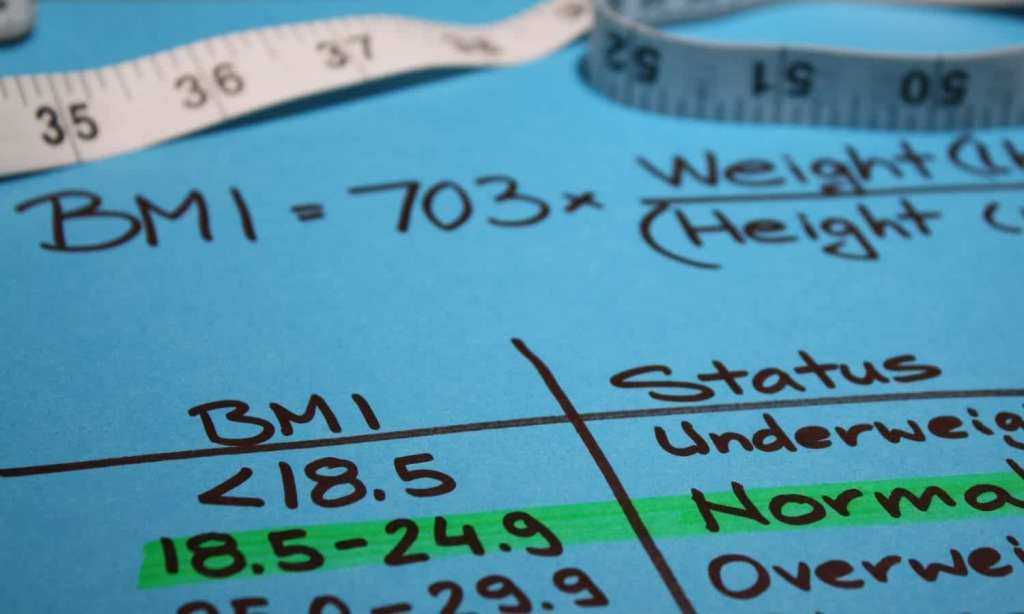If you haven’t heard of the body mass index (BMI), I have two things to say to you. Firstly, what rock have you been under? Secondly, I’m incredibly jealous.
As a teenager, the BMI chart was the main indicator of health. We’d discuss it in PDHPE, talk about it with other friends, and in all honesty, the lower it was, the higher the pride for myself and my body was. Not the healthiest of behaviour.
As an adult, I’ve recognised how flawed my thinking was – and how flawed using BMI as an indicator of health is and it’s not just me who has recognised this.
When conducting research for the article, I had health professional after health professional tell me that the BMI chart “has its limitations”, can be “incredibly misleading”, is “terribly inaccurate” and an “outdated calculation”.
The Latch spoke to Rebecca Warren, clinical nutritionist and naturopath, and Andrew Daubney, accredited exercise physiologist and director of Rebound Health, to find out their thoughts on the BMI chart – and gave suggestions on how health should be “measured” instead.
What is BMI?
In its most basic terms, a BMI is “a calculation that basically works out if you’re the right weight for your height,” says Warren. The maths behind it is: your weight’s taken in kilograms, then divided by your height in meters squared.
Is BMI an accurate measurement of health?
This is where it gets a bit murkier.
Warren’s personal opinion is that “[It’s] far from perfect, but health research on very large numbers of people can be extremely time-consuming, expensive and difficult.” Expanding on this, she says that the BMI acts as a simple, quick calculation that can give “really useful clues and point us in the right direction for other areas.”
Daubney hasn’t used BMI “in years”, as it’s “only an estimate and it doesn’t take into account age, ethnicity, gender or body composition.” He also emphasises that just because someone is considered ‘fat’ according to their BMI result, doesn’t mean that they’re unhealthy.
Warren says she uses it as a piece of the puzzle when it comes to assessing an individual’s health. Why? Well firstly, “Simply using the BMI alone doesn’t allow us to understand body composition.”
Another reason why Warren doesn’t use BMI in isolation is that, “where you carry your weight matters.” Those who are apple shapes (carrying additional weight around their waist), need to be careful as this weight can increase pressure around vital organs including the heart, lung liver. And this is “irrespective of what your BMI says.”
A third reason why professionals are saying bye to the BMI? “Your BMI might be in the healthy range, [but] you might have high visceral fat – the ‘bad fat’,” explains Warren.
If we say bye to the BMI, how do we measure health?
Daubney says it’s difficult to try and identify one measure for ‘health’. There are multiple ways to measure health, including “metabolic health, cardiovascular health, musculoskeletal health.” Then there are lifestyle factors that contribute: “smoking, stress, sleep, nutrition, exercise.”
Warren says that the BMI only tells people about weight, and nothing else, saying that “health is multifactorial, our approach to it (and measurement of it) should be too!”
She also thinks individuals should be more involved from the get-go – asking them to rate and reflect on their own experience of health and wellbeing, and using it as a part of the baseline measurement.
“I think that as health professionals, we can sometimes come to rely too heavily on stats and numbers. We forget about the person experiencing ‘health’,” says Warren.
With physical health, Warren personally likes to opt for waist measurement, blood pressure, and heart rate in addition to health. Blood tests, stool tests, and saliva tests are also used on an individual basis when trying to correct health issues.
Daubney says other ways to measure health include waist-to-hip ratio, metabolic profile, aortic calcification, and fitness measures.
BMI doesn’t measure mental health
One thing Warren made sure to point out was that health isn’t just about physical health.
“I talk to my patients about their mood, energy levels, exercise patterns and capacity, sleep patterns/quantity, and the quality of their relationships.” In addition to this, she looks at people’s relationship with food.
So, should we say bye to the BMI?
Daubney personally believes it’s not a useful measure, as “most people would know if they’re [considered] overweight or obese.” However, he does understand the need for health care providers to be able to objectively look for measures of health.
“It has its place, but we should be looking at it as a starting point for conversation, asking more questions of the individual as opposed to seeing it as the final destination,” according to Warren.
Warren emphasised that at the end of the day, the BMI is a measurement tool, not a diagnosis.
If you or someone you know is struggling, you can call the Butterfly Foundation on 1800 33 4673. You can also speak with someone confidentially at Headspace by calling 1800 650 890 or chat online here.
Read more stories from The Latch and follow us on Facebook.

